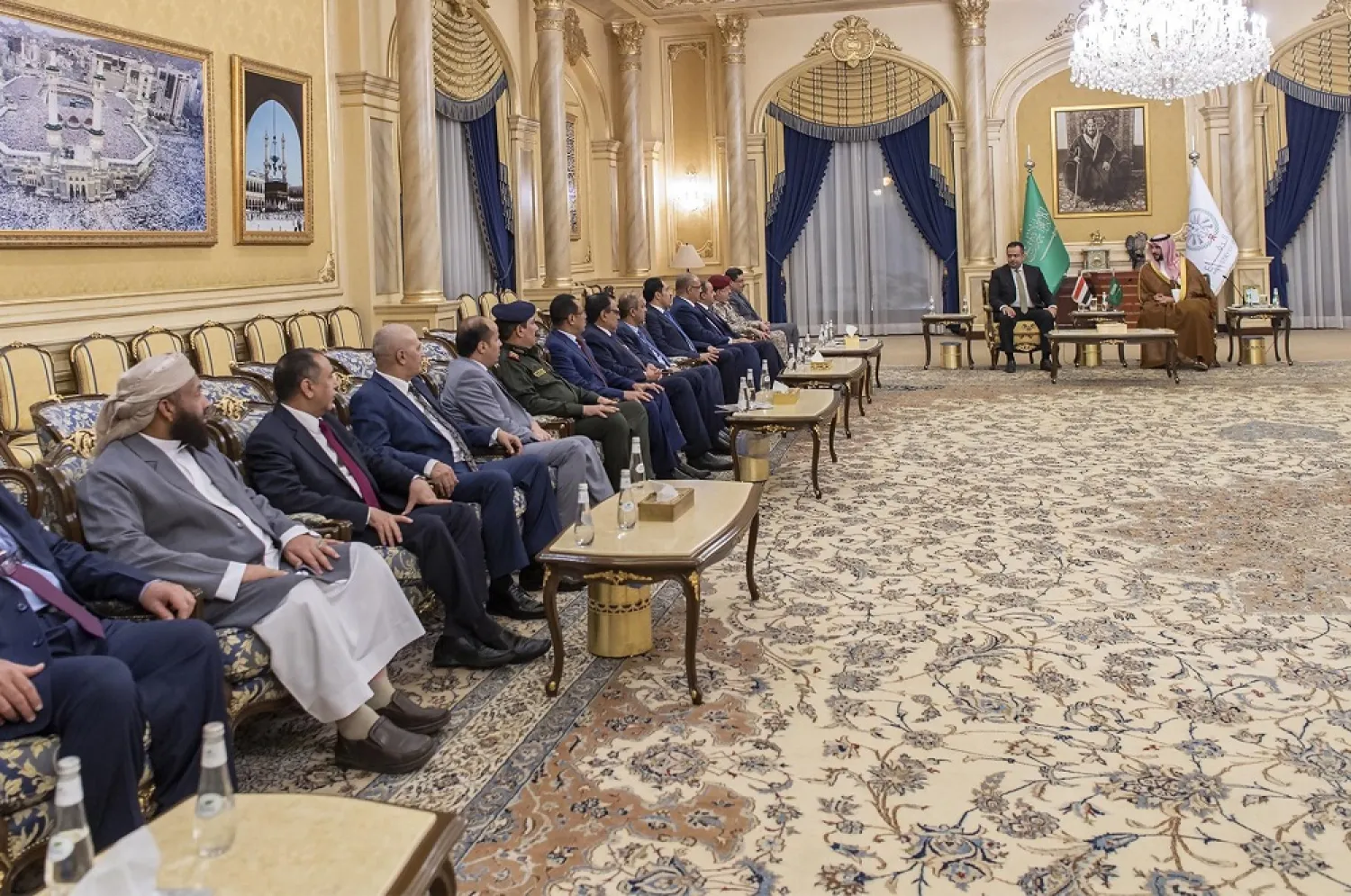The legitimate Yemeni government is optimistic that the two-month truce declared in the war-torn country would lead to the lifting of the siege imposed by the Iran-backed Houthi militias on the Taiz province.
The ceasefire was declared by United Nations envoy Hans Grundberg at the intra-Yemeni consultations in Riyadh on Friday.
The terms of the two-months truce include facilitating the entry of 18 fuel ships into the ports of Hodeidah and allowing two commercial flights a week to and from Sanaa airport. The terms also include convening a meeting between the parties to agree on opening roads in Taiz and elsewhere to improve civilians' freedom of movement inside Yemen.
Meanwhile, Saudi Deputy Defense Minister Prince Khalid bin Salman stressed on Sunday the Saudi-led Arab coalition's keenness on restoring security, peace and stability in Yemen.
He held talks in Riyadh with Yemeni Prime Minister Dr. Maeen Abdulmalik and several of his ministers.
Prince Khalid highlighted Riyadh's welcoming of the two-month ceasefire. He noted that it is in line with Saudi initiative that was announced in March 2021 with the aim of ending the crisis in Yemen and reaching lasting comprehensive political solution.
For his part, Abdulmalik said hailed Saudi Arabia's constant support to the Yemeni people, the legitimate government and the security and stability of Yemen.
He remarked that the intra-Yemeni consultations give hope to the people and are a major support of the government's efforts to achieve security, stability and prosperity.
Yemeni Information Minister Moammar al-Eryani said the government was positively dealing with Grundberg's efforts based on its belief in the peaceful solution to the crisis and commitment to the people.
He underscored the need for setting a timetable for implementing commitments demanded from the warring parties, noting that the Houthis have a long record in shirking pledges and creating excuses to renege on them.
Eryani said the government has made "concession after concession" to ensure the success of truce efforts and ease the humanitarian suffering of the people. This included reopening Sanaa airport and the Hodeidah port.
In contrast, the Houthis have obstructed international peace initiatives and efforts for the past seven years. They have been intransigent and sought to deepen the humanitarian suffering of the people.
In Riyadh, the officials at the consultations have made palpable progress in reaching radical solutions that could end the war and achieve peace. All Yemeni parties, except the Houthis, have made it to the talks.
Saudi Ambassador to Yemen and General Supervisor of the Saudi Development and Reconstruction Program for Yemen (SDRPY) Mohammed Al-Jaber remarked that the consultations have succeeded in bringing together all Yemeni parties and groups in pursuit of peace and security.
In a tweet, he said the consultations have offered the participants the opportunity to review their stances and achieve rapprochement to draw up together a roadmap that can move Yemen from war and destruction to peace and development.
In spite of the optimism, some observers continue to question the Houthis' commitment to the ceasefire, especially in the Marib province where they continue to amass fighters and launch attacks.
Khalid bin Salman Stresses Saudi Arabia Keenness on Yemen's Security, Stability
Saudi Deputy Defense Minister Prince Khalid bin Salman stressed on Sunday the Saudi-led Arab coalition's keenness on restoring security, peace and stability in Yemen.
He held talks in Riyadh with Yemeni Prime Minister Dr. Maeen Abdulmalik and several of his ministers.
Prince Khalid highlighted Riyadh's welcoming of the two-month ceasefire in Yemen that was declared United Nations envoy Hans Grundberg on Friday. He noted that it is in line with Saudi initiative that was announced in March 2021 with the aim of ending the crisis in Yemen and reaching lasting comprehensive political solution.
He said the Kingdom hopes the latest truce would push forward political efforts aimed at reaching a political settlement at the intra-Yemeni consultations that are being hosted by the Gulf Cooperation Council in Riyadh.
The talks had kicked off last week and will conclude on April 7.
For his part, Abdulmalik said hailed Saudi Arabia's constant support to the Yemeni people, the legitimate government and the security and stability of Yemen.
He remarked that the intra-Yemeni consultations give hope to the people and are a major support of the government's efforts to achieve security, stability and prosperity.
He hoped the consultations will lead to proposals that serve the people.









